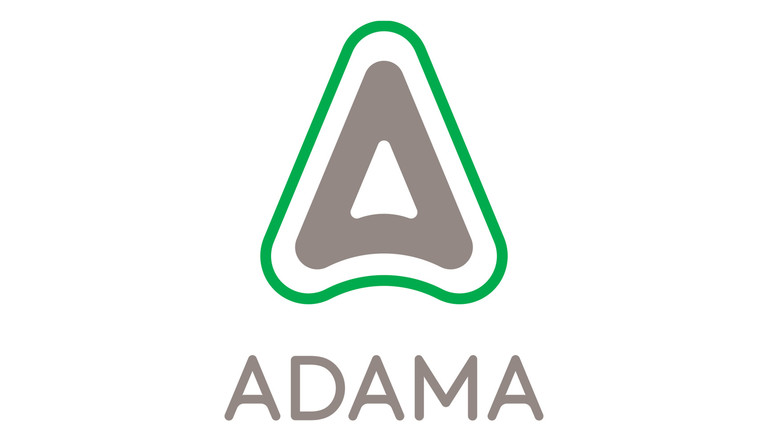
Listen, learn, deliver” key to supporting farmers/growers

Feeding the world is a seemingly lofty ideal that’s closely linked to a very basic necessity. For many countries, food security is a very serious concern, and food poverty a daily reality.
ADAMA NZ’s Marketing Manager Sarah Robertson says that ADAMA Ltd provides the knowledge and products farmers and growers need to continue to work towards meeting these pressing needs.
It’s estimated that New Zealand farmers and growers alone feed 40 million global consumers a year, but they can’t do it without effective crop protection support, Sarah says.
“ADAMA’s commitment is ‘Listen, learn, deliver.’ And our expertise and chemistry is among the best in the world.”
ADAMA is a member of the Syngenta Group, the world’s largest agricultural inputs company with over 55,000 employees across more than 100 countries.
Sarah says, at a local level, the company focuses on needs region by region.
“On the ground in New Zealand, we are committed to meeting this country’s unique challenges, and also to the exciting emerging opportunities around new crops. Our one-of-a-kind portfolio of active ingredients gives us the flexibility to create solutions that meet local farmers’ and growers’ needs. We bring a lot to the table.
“ADAMA’s solutions to combatting weeds, insects and diseases contribute significantly to food security and the viability of crops.”
It’s much more than just a job, as Sarah explains. She says stakes are high when lives along with livelihoods are on the line. “We are passionate about agriculture. Our straightforward, get-it-done attitude helps us stay focused on what we care about most; helping our customers create more sustainable, profitable businesses.”
Sarah says ADAMA proactively seeks opportunities to better understand customers, resellers and industry advisors. “We take on board feedback and learn from their experience.”
Those insights are combined with ADAMA’s scientists’ expertise; with the company responding with new products, solutions, services, tailored commercial policies, and information and advice that is relevant to the market.
“Collaborating with distributors and their clients is fundamental to our work at ADAMA. Our team possesses an extensive knowledge of chemistry, which makes discussing our products effortless. However, finding the optimal solution may not always be a straightforward process. Therefore, we continuously seek opportunities to listen and stay informed to better serve our customers.”
ADAMA is a global company present in over 100 countries which provides New Zealand farmers and growers access to information and options, should a risk previously identified overseas make its way here.
“We’re well-networked with other ADAMA countries and continually looking at what’s happening elsewhere around the globe, to see what we can learn from others’ experiences..”
Sarah says, in the future, products and services will increasingly be influenced by issues beyond efficacy. These include environmental sustainability, digital control of precision application, disease identification and crop monitoring.
“There’s also an increasing emphasis on a regenerative mind set; producing more sustainably.”
A recent example of enhanced environmental protection has been Injecta 400® and Di-Bak G® This combination tackles wilding pines in a more targeted and efficient way, while reducing the chemical load on the environment.
Described as an “environmental disaster”, wilding pines have overwhelmed our landscapes, killing native bush and the native species living there, and creating fire hazards.
Sarah says the Injecta 400’s new technology directly inserts capsules containing glyphosate into the trunk, killing the tree from the inside. Importantly, it also keeps the glyphosate contained. This prevents glyphosate leaking out - optimising efficacy and reducing waste and unintended consequences.
“With conventional ‘drill and fill’, the chemical can leak out and escape into waterways. Sealing the Di-Bak G capsules into the tree trunk makes the system suitable for even sensitive areas including those adjacent to riparian zones, pastures and parks.
“It is quick and clean. And in two to three months the tree will die.”
Another more sustainable example is the “softer” chemistry of Mavrik® Aquaflo Insecticide (Mavrik), which ADAMA launched into the beet market in 2021.
Mavrik offers effective control of major beet pests Nysius and cutworm while having low toxicity to beneficial insects foraging in beets and surrounding crops. Crucially, it is also safer for those using it, something Sarah says companies and growers are increasingly aware of. “Standards and expectations are lifting all the time and our goal is to stay ahead of them. We want to be the gold standard in efficacy and safety.”
Contact your local rural supplier or ADAMA Commercial Manager for more information or visit adam.com